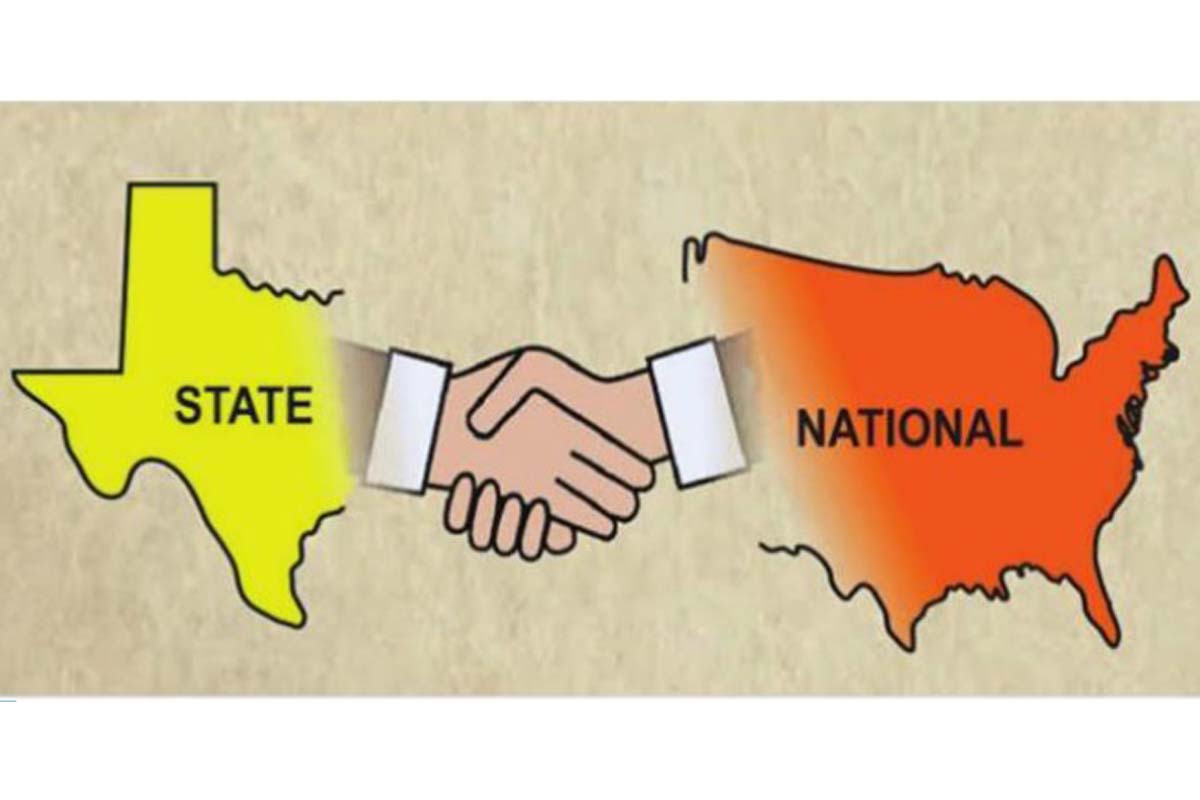
Federalism and the prevalence of its role in our government has been debated since the inception of our country. The start of federalism began with the Federalist Papers written by Hamilton, Madison and Jay. In the Federalist 39 on page 119 and onto 120, Madison insists that the only way to effectively govern is to derive the government from the broad range of people rather than a select group of nobles, however, Madison sets up no guidelines to see that this dynamic is enforced. In the present day, Super PACs and wealthy individuals have the resources to buy votes in Washington with the goal of influencing federal policy and essentially drowning out the general will of the people. Because of this, 63% of people believe their state government is trustworthy and open to citizen input, compared to only 40% who said the same of the federal government. (The Hill). This data would suggest that constituents feel they are better represented in their state as opposed to nationally and thus would prefer state to state policy as opposed to uniform policy nationally. This is not necessarily what the Founders intended. Outlined in the Federalist Papers, Hamilton, Madison and Jay envisioned a union of federal and state governance in which the two were equally trusted and worked in harmony together.
Often times, the federal government and state governments are at direct odds with each other, leading to different laws varying across the country. Using immigration as an example, I read a paper by the US Immigration Policy Center, and learned how much immigration policy varies from state to state and apparently even from city to city. I think this is a rather inefficient and chaotic system as it lacks a uniformity and allows states to defy the federal government and cities to defy states. However, I believe this seemingly absurd power dynamic is the best system we could realistically achieve. In a perfect world, immigration policy would be the same nationwide. This would be more clear for residents, immigrants and even ICE itself, but no one on either political side would be happy with this as the nationwide immigration policy would be delayed for months if not years due to bipartisan bickering, and would result in a moderate policy as both sides would be forced to make concessions. In this case I believe the status quo is the best representationally, as it allows residents who are impacted by immigration to dictate the terms of how it works where they live. I still believe this is the most realistic system this country could achieve as I would not count on bipartisan cooperation on such a divisive issue.
Seeing federalism basically holding the country together on immigration may be enough for people to just accept the current system in place, but I want to acknowledge that political parties have abused this system in the past. A prime example of federalism failing is racial discrimination before the Civil Rights Act. Federalism was used to ensure national policy on the matter was not implemented. In a Washington Post article, author Ilya Somin states, “For many liberals, the ideal of state and local independence was permanently tainted by Southern states’ “massive resistance” to federal attempts to remedy racial discrimination in the 1950s and ’60s. ‘If one disapproves of racism, one should disapprove of federalism,’ political scientist William Riker categorically asserted in 1964.” (Washington Post). Federalism caused an indisputable injustice went on longer than it had to. Some would say this case in an example for why states should have less power over issues closest to them. However, I find that using morality to justify an increase in federal power could set a dangerous precedent for more ambiguous and complicated issues. Take a non-black and white issue like discrimination, and replace it with something more grey, such as abortion or gun control, and political parties with a majority using the guise of a moral high ground to justify the nationalization of a policy becomes dangerous. Values and priorities, like demographics across America are diverse and complex. A 21-year-old student living in California is going to have different views than a 50-year-old farmer in Nebraska, and because of this, the laws in their respective states should reflect the views of the people who live there, not the agenda of the political party that happens to be in power at the time in DC.
In conclusion, federalism is not exactly working as it was necessarily intended. Citizens trust their state government much more than the federal government, leading to them being less receptive to national policies. Federalism also creates an array of variations from state to state, making it difficult for citizens to know the state of the law. Federalism has also been abused so evil purposes in the past, specifically by Southern states in the 1950’s and 1960’s. However, despite all of the apparent drawbacks, federalism is still the best system that could be put in place. Representationally, it gives the people a voice in their state that is not often seen at the federal level. Allowing people to determine the law in their state is a good thing, because it helps cater to different demographics, priorities and needs. It is far from a perfect system, but a system that needs to continue nonetheless if we are to believe that voters’ voices truly matter.
Manchester, Julia. “Pollsters Say Americans Have More Trust in Local Government than in Federal Government.” TheHill, 18 Oct. 2018, thehill.com/hilltv/what-americas-thinking/412117-pollsters-say-americans-have-more-trust-in-local-government.
Somin, Ilya. “Perspective | How Liberals Learned to Love Federalism.” The Washington Post, WP Company, 12 July 2019, www.washingtonpost.com/outlook/how-liberals-learned-to-love-federalism/2019/07/12/babd9f52-8c5f-11e9-b162-8f6f41ec3c04_story.html.
Tom Wong et al. 2019. Fractured Immigration Federalism: How Dissonant Immigration Enforcement Polices Affect Undocumented Immigrants (Links to an external site.). US Immigration Policy Center.